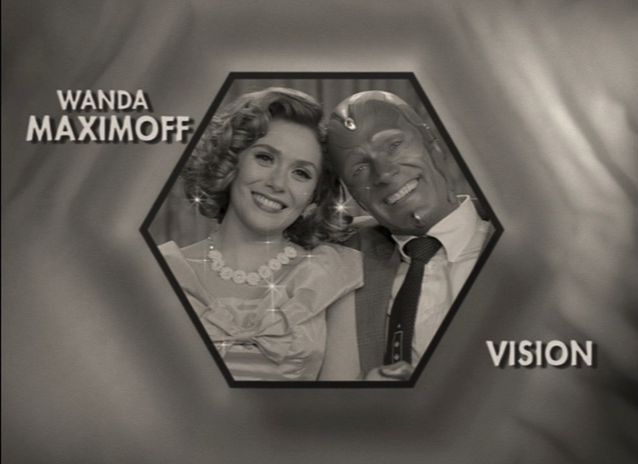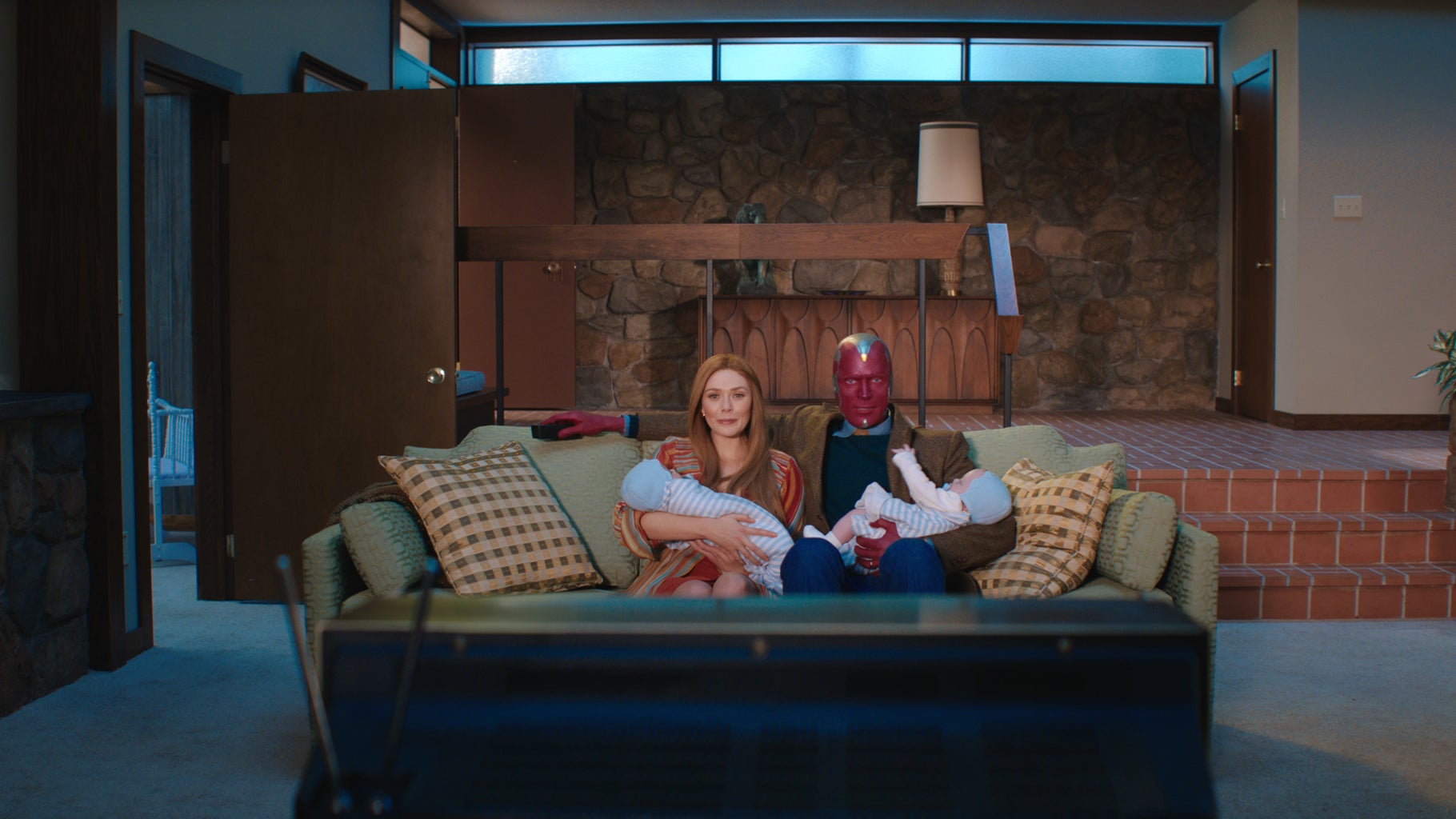Though it’s been about six months since the final episode of Marvel’s illustrious WandaVision that aired on Disney+, I’m finally ready to discuss my thoughts.

To preface this review, I’ll begin with a little bit about myself. Prior to watching WandaVision, I had never seen a Marvel movie. Therefore, I felt apprehensive about being able to fully understand the plot. Secondly, action-packed superhero movies have never been my cup of tea. To be honest, I’m more of a rom-com kind of gal. Yet, when the release date for WandaVision rolled around, my Marvel-stan boyfriend convinced me to watch it with him, explaining that this would be a “different” kind of superhero show. Though I was highly skeptical at first, I decided to give the series a chance.
WandaVision is a nine-episode spinoff series following the life of two newly-wedded Marvel superheroes, or “Avengers,” as they settle down in the picturesque town of Westview, New Jersey. Drawn from characters detailed in the original Marvel comic books, the show features Wanda Maximoff, a witch equipped with powers of telekinesis and telepathy, and Vision, a computer-programmed being with superhuman abilities. The story is told in the format of a sitcom, a strikingly different genre in comparison to Marvel’s typical work. Each episode represents a different era of American pop culture, beginning with the 1950s and ending with the 2000s. While the episodes carry a lighthearted tone at surface level, an underlying sense of mystery and darkness is woven throughout the scenes. At first glance, Westview presents itself as an idyllic suburbia for a happily married couple. Yet, as the story unravels, it becomes increasingly clear that something more is brewing underneath the surface. Primarily, Marvel fans would begin watching the show knowing that Vision has already died in one of the preceding Marvel films. Therefore, viewers are left with a puzzling question: how did Wanda bring Vision back to life? As the series draws to a close, it ultimately becomes evident that Wanda has been supernaturally manipulating the citizens of Westview—including her own husband and children—to fit her narrative of a “perfect” life. Stricken with grief by the death of Vision, Wanda created a utopian world in which she was able to live happily married with children: the life she yearned for as a child.
With catchy theme songs each week, eerie “commercials” embedded throughout the show and an excellent use of wardrobe and special effects, the story of WandaVision is truly brought to life for an optimal viewing experience. While some minor parts were confusing for a non-Marvel fan, a quick Google search (or in my case, bothering my boyfriend while watching the show) easily explained the necessary aspects of the plot. For the most part, I was able to keep up with the storyline and found myself looking forward to watching the show each week. I absolutely loved the intricacy and attention to detail which encapsulated each “decade” in the show and thought it was incredibly well-done. In addition, the mysterious element adds an exciting element to the story which kept me interested as I waited to discover what was truly happening in Westview.
Aside from the exceptional production of the series, WandaVison’s storyline transpired into so much more than just an average superhero TV show. At face value, WandaVision tells the story of a mind-control experiment at the hands of a troubled witch. Yet, as we delve deeper into the plot, the series provides insight into important themes and life values, such as grappling with grief and overcoming trauma. Additionally, the series portrays the “badass female character lead” trope in a manner that feels honest rather than stereotypical or overtly sexualized. At the heart of it all, Wanda may possess superhuman abilities, but she still struggles to deal with mental health issues while simultaneously caring for her loved ones. Wanda is occasionally portrayed as the fantastical Scarlet Witch with superhuman abilities, but more than anything, she is a deeply “real” and human character who, like all of us, must find a way to cope with loss.
As we see Wanda’s character shift in a dynamic manner throughout the episodes, we are left to ponder the question for ourselves: how much would you risk in order to live happily with the people you love? It becomes a matter of wrong and right, posing a difficult challenge for the main character and a resonating message for the viewer.
Overall, I truly enjoyed the series and I would highly recommend it to any viewer, Marvel fan or not. Though it was unexpected, WandaVision left a truly valuable and meaningful impression on me.




